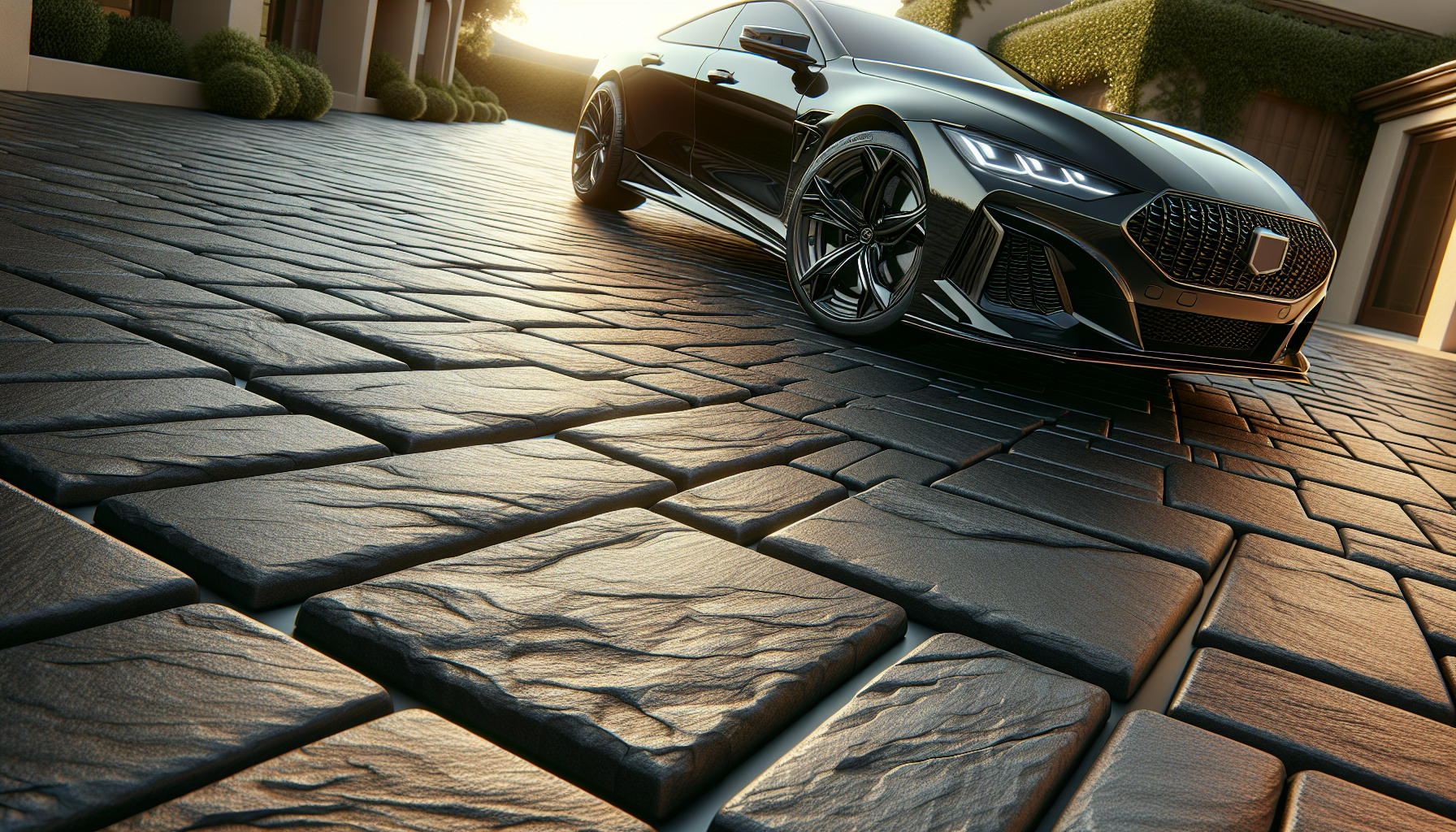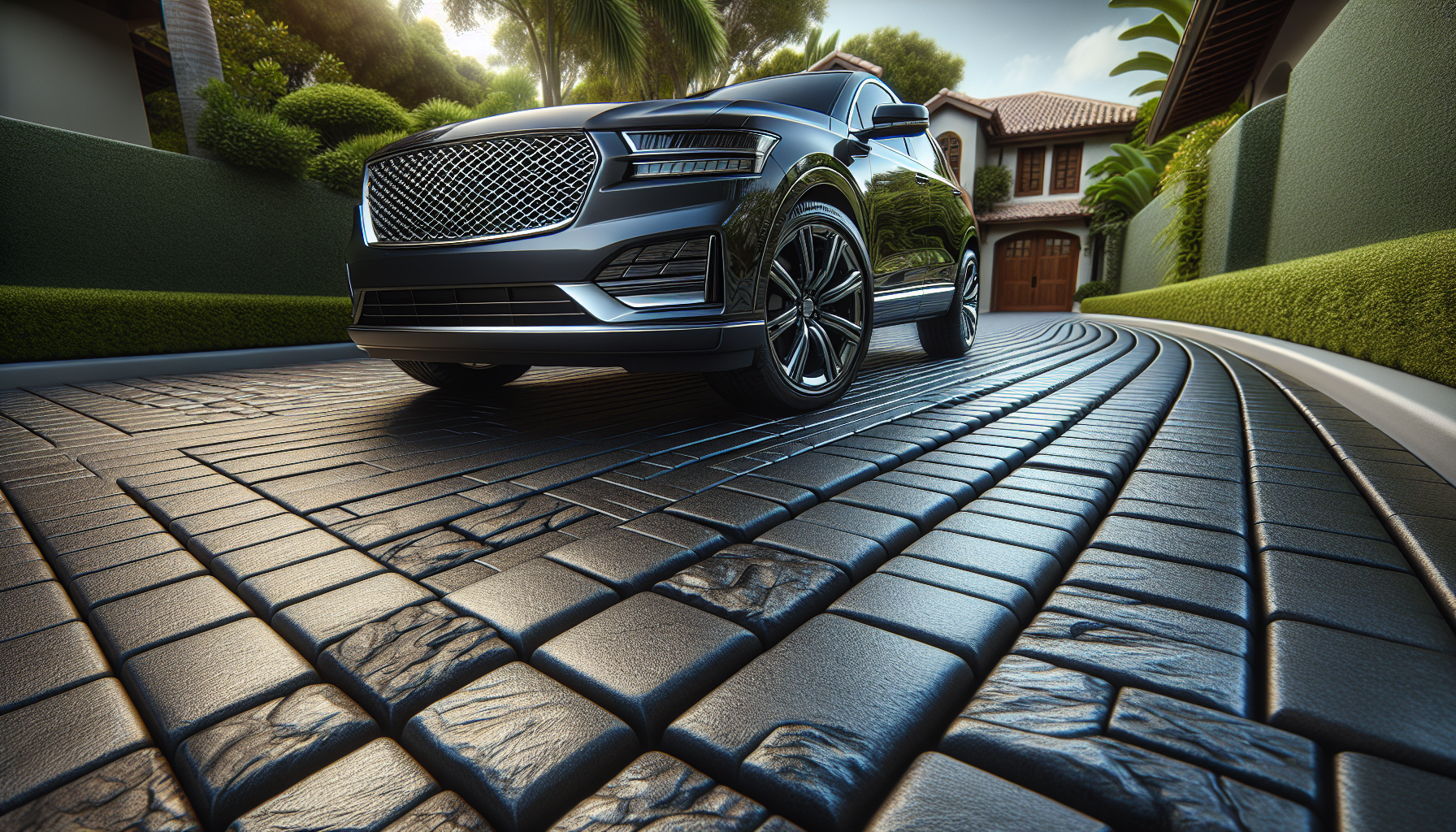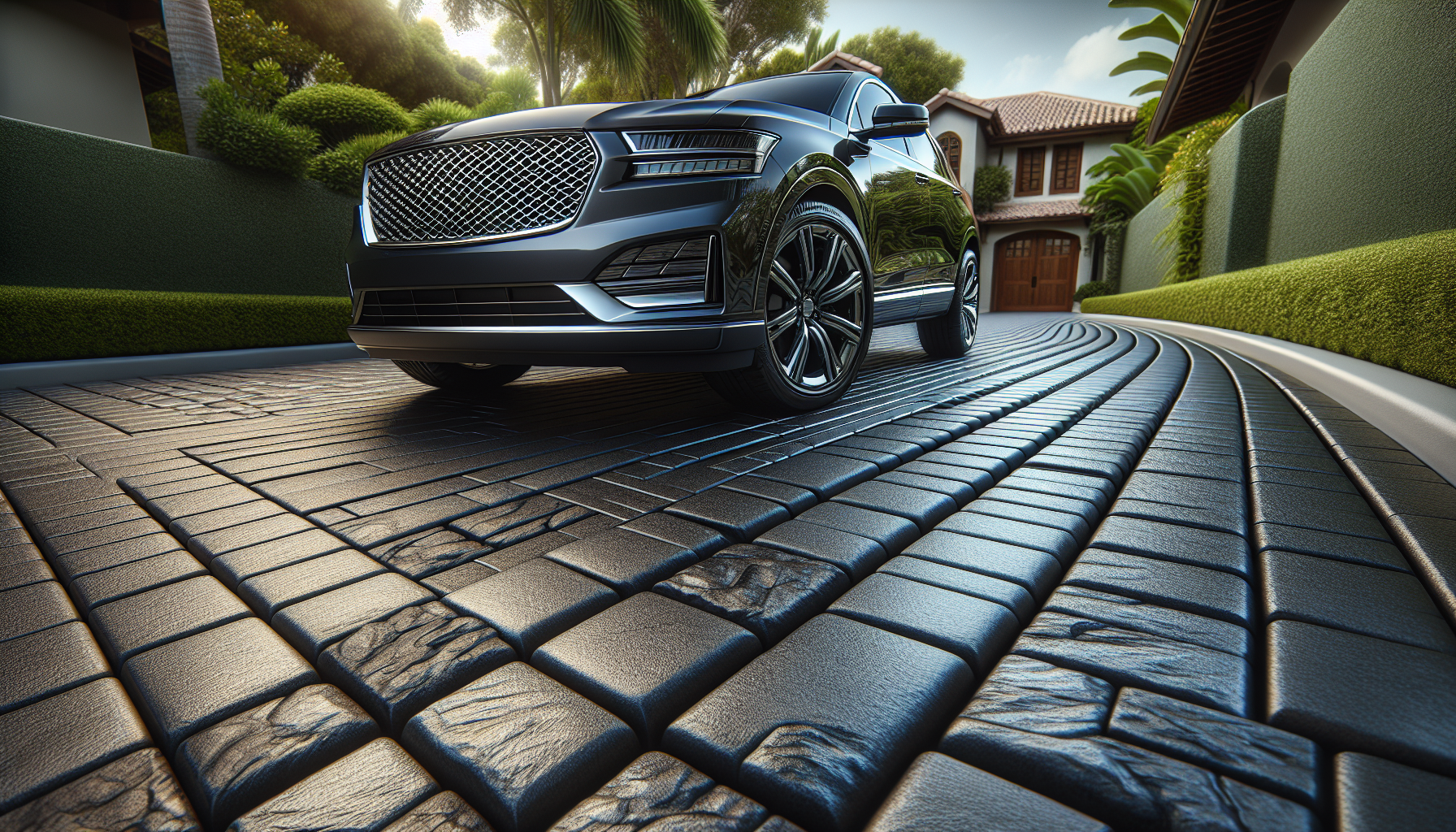Have you ever wondered if the pavers around your home can support the weight of a car? This question can pop up, especially if you are considering enhancing your driveway or outdoor space with pavers. Let’s begin by discussing what pavers are and how they can serve various functions in your property.

What Are Pavers?
Pavers are flat pieces of stone, concrete, or brick commonly used for outdoor flooring. They are popular for creating walkways, patios, and driveways. You can find a variety of styles, colors, and shapes to suit different aesthetic preferences and landscaping plans.
When you see pavers in neighborhoods, you’ll notice how they can elevate the appearance of a property. Whether arranged in a geometric pattern or a more organic design, they can truly make an outdoor space feel more inviting and vibrant.
Why Pavers Are Popular
Installing pavers has grown in popularity due to their versatility and durability. They offer a few benefits:
- Aesthetic Appeal: Pavers come in many designs, allowing homeowners like you to customize your outdoor area.
- Easy Maintenance: Most pavers require minimal upkeep compared to asphalt or concrete surfaces.
- Drainage: Using pavers allows for better water drainage, which can help prevent puddles and run-off issues.
In Arizona, where you often deal with extremes in temperature and occasional heavy rainfall, the benefits of using pavers weigh significantly. Pavers can adapt to shrinking or expanding soil conditions, thus reducing the chances of cracking or shifting.

Can Pavers Support a Car?
When this question arises, it is essential to consider a couple of factors before you answer it outright. The specific type of paver, the installation process, and the base material used all play a significant role in determining if pavers can shoulder the weight of a car.
Types of Pavers
-
Concrete Pavers: These are the most common type due to their strength and stability. They can easily hold the weight of a car if installed correctly.
-
Brick Pavers: Made from baked clay, brick pavers can also bear the weight of vehicles. However, they may not be as strong as concrete pavers, and you should consider factors like installation technique.
-
Stone Pavers: Natural stone offers a unique aesthetic but can vary in strength. Be sure to choose a dense stone that can handle heavy loads.
Installation Factors
The installation method is crucial for ensuring your pavers can support a vehicle. You should keep the following points in mind:
-
Base Preparation: Proper base preparation is essential. A well-compacted base helps distribute the weight of a vehicle across the pavers.
-
Geotextile Fabric: Using geotextile fabric under the base can help with drainage and prevent the base material from shifting over time.
-
Paver Thickness: Generally, pavers should be at least 2.5 inches thick for vehicle use to handle the associated load.
Load Distribution
When a car is parked on pavers, the weight should distribute over the surface area adequately. This distribution depends on factors like the size of the tires and how long the vehicle is parked. For example, wider tires may distribute weight over a larger area, reducing the risk of damaging the pavers.
Recommendations for Driveways
If you plan on using pavers for a driveway, you will want to follow a few best practices:
-
Choose the Right Paver: Opt for concrete or large stone pavers designed for heavy loads.
-
Hire Professionals: If you’re uncertain about installation, hiring professionals can provide peace of mind. Proper installation prevents future issues.
-
Regular Maintenance: Keep your pavers clean and replace any that may crack or shift. This ensures longevity and maintains visual appeal.
Beyond Cars: Other Uses of Pavers
Pavers are not only for driveways; they serve many other purposes too. For example, they can be used for patios, walkways, and even around pools. Each function has its unique considerations regarding load-bearing and design.
Pavers for Patios
Creating a patio with pavers allows for a beautiful outdoor lounging space. You can opt for pavers that match your landscaping while also ensuring they’re sturdy enough for furniture and foot traffic.
Pavers for Walkways
Using pavers for walkways enhances the overall appearance of your home while providing a functional pathway. Make sure they are not too slippery in wet weather to avoid accidents.
Paving Around Pools
If you’re planning to install a pool or already have one, pavers can provide a slip-resistant surface. Choose textured pavers to ensure safety and allow for water drainage.
Potential Issues to Watch For
While pavers can support a car, they are not without their challenges. Here are some potential problems that can arise:
-
Weed Growth: Over time, weeds can grow between the pavers, which can detract from their appearance. Regular maintenance is crucial for keeping them looking fresh.
-
Shifting: If not properly installed, pavers may shift over time, which can lead to uneven surfaces. This is especially true if the base was not compacted correctly.
-
Cracking: While pavers are generally durable, pressure from a vehicle can result in cracking if they were not designed for those loads or if they are thawing from frost.
Regular Maintenance Tips
Maintaining pavers may seem overwhelming, but it can be a straightforward process. Here’s how you can care for your pavers:
Cleaning
Regular cleaning keeps your pavers looking new. You can use a broom or pressure washer to remove dirt. Be cautious with pressure washing, as too much pressure can damage the pavers.
Sealing
Sealing your pavers can help prevent stains and keep the colors vibrant. You’ll want to apply a sealant after installation and then regularly afterward based on the product’s recommendations.
Grout Replacement
If you notice gaps between the pavers or if the grout is breaking down, it might be time to replace it. This will help with stability and keep unwanted plants from growing.
Conclusion
When considering whether pavers can hold a car, it is essential to look at the type, installation, and intended use. With the right choices, pavers can offer a sturdy and appealing option for your home.
If you’re looking for professional help with installation or repairs, consider reaching out to Xclusive Home Services. They offer a range of solutions, including hardscaping services that can help you create the perfect paver driveway or patio.
Contact Information
Xclusive Home Services
14505 N. Hayden Rd., Ste. 101
Scottsdale, AZ 85260
Phone: (602) 341-5545
Email: management@xclusivehomeservicesco.com
Partnering with experts ensures that your pavers remain a gorgeous and functional part of your outdoor space for years to come!


